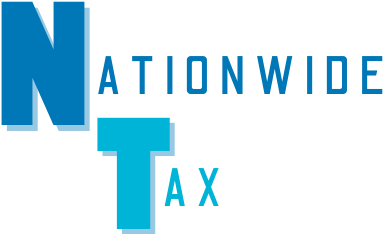Introduction
When it comes to filing your taxes, there are many factors to consider, including the tax return fee. The tax return fee refers to the cost of having a professional prepare and file your tax return on your behalf. Understanding how much the tax return fee is and why it is important can help you make informed decisions and minimize your expenses while maximizing your refund.
Table of Contents
- What is the tax return fee?
- Why is the tax return fee important?
- How much is the tax return fee?
- How can I minimize my tax return fee?
- How can I maximize my tax refund?
- Frequently Asked Questions
- Conclusion
What is the tax return fee?
The tax return fee is the amount you pay to a tax professional, such as an accountant or tax preparer, to prepare and file your tax return on your behalf. This fee can vary depending on the complexity of your tax situation and the expertise of the professional you choose to work with.
Why is the tax return fee important?
The tax return fee is an important consideration when filing your taxes because it directly affects your overall expenses. By understanding the cost of the tax return fee, you can budget accordingly and ensure that you have the necessary funds to cover this expense.
Additionally, the tax return fee is a reflection of the expertise and value provided by the tax professional. While it may be tempting to opt for the cheapest option, it is important to consider the qualifications and experience of the professional. A knowledgeable and experienced tax professional can help you navigate the complexities of the tax code and identify potential deductions and credits that can maximize your refund.
How much is the tax return fee?
The tax return fee can vary depending on several factors, including:
- The complexity of your tax situation: If you have a simple tax return with only a few sources of income and no complex deductions or credits, the tax return fee is likely to be lower. On the other hand, if you have a more complex tax situation, such as owning a business or rental property, the tax return fee may be higher.
- The location of the tax professional: The tax return fee can also vary depending on your location. In urban areas or areas with a higher cost of living, tax professionals may charge higher fees compared to rural areas.
- The experience and qualifications of the tax professional: Tax professionals with more experience and advanced qualifications may charge higher fees due to their expertise and the value they provide.
On average, the tax return fee can range from $150 to $500 or more, depending on the factors mentioned above. It is important to note that this is just an estimate, and the actual fee you may be charged can vary.
How can I minimize my tax return fee?
If you want to minimize your tax return fee, there are a few strategies you can consider:
- Shop around: Don’t be afraid to compare prices and services offered by different tax professionals. Look for professionals with a good reputation and reasonable fees.
- Be organized: By organizing your financial documents and providing accurate information to your tax professional, you can reduce the amount of time they spend on your return, which may result in a lower fee.
- Consider online tax preparation software: If your tax situation is relatively simple, you may be able to use online tax preparation software to file your return yourself at a lower cost compared to hiring a tax professional.
Remember, while minimizing your tax return fee is important, it is equally important to ensure that you are getting quality service and guidance from a qualified professional. The goal is to strike a balance between cost and value.
How can I maximize my tax refund?
While the tax return fee is an expense, there are strategies you can implement to maximize your tax refund:
- Take advantage of deductions and credits: Be sure to claim all eligible deductions and credits to reduce your taxable income and potentially increase your refund. Familiarize yourself with the tax code or consult with a tax professional to ensure you are maximizing your tax savings.
- Contribute to retirement accounts: Contributing to a traditional IRA or 401(k) can lower your taxable income and potentially increase your refund. This is especially beneficial if you are in a higher tax bracket.
- Review your withholding: Adjusting your withholding throughout the year can help ensure that you are not overpaying or underpaying your taxes. By optimizing your withholding, you can have more money in your paycheck or receive a larger refund.
Frequently Asked Questions
1. Is the tax return fee tax deductible?
The tax return fee itself is not tax deductible. However, if you have other expenses related to tax preparation, such as the cost of tax software or books, those may be deductible.
2. Can I negotiate the tax return fee?
While it is not common to negotiate the tax return fee, you can always inquire about any discounts or promotions the tax professional may be offering. It never hurts to ask!
3. Can I prepare and file my tax return myself?
Yes, you can prepare and file your tax return yourself using online tax preparation software. This can be a cost-effective option if you have a relatively simple tax situation and are comfortable navigating the tax code.
Conclusion
Understanding the tax return fee and its importance can help you make informed decisions when filing your taxes. By considering the complexity of your tax situation, shopping around for tax professionals, and maximizing your tax deductions and credits, you can minimize your tax return fee and potentially increase your refund. Remember, it is essential to strike a balance between cost and value to ensure you receive quality service and guidance while keeping your expenses in check.
